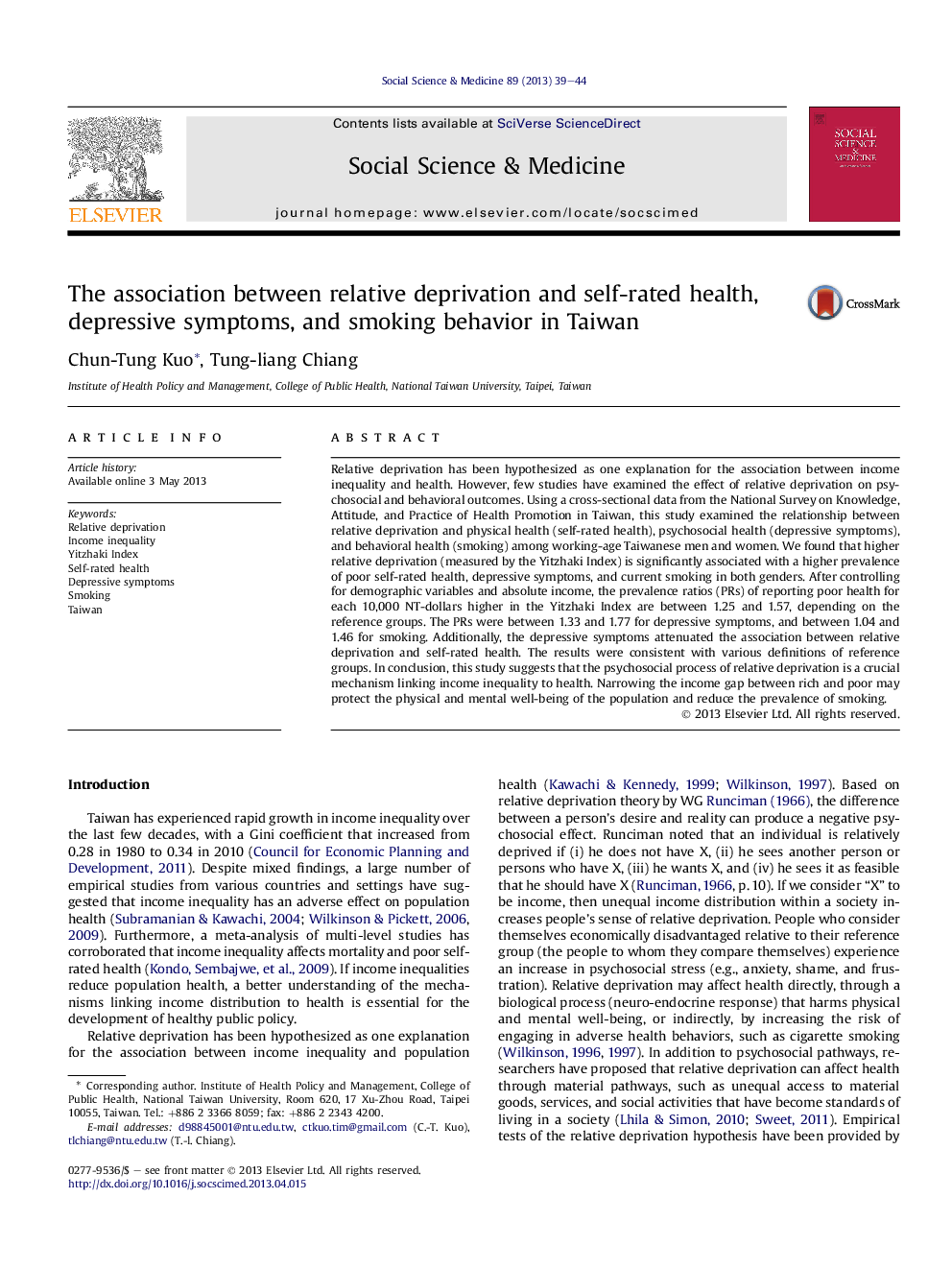| کد مقاله | کد نشریه | سال انتشار | مقاله انگلیسی | نسخه تمام متن |
|---|---|---|---|---|
| 952305 | 1476079 | 2013 | 6 صفحه PDF | دانلود رایگان |
• First study to show higher relative deprivation is associated with worse physical, mental, and behavioral health in a sample.
• The depressive symptoms attenuate the association between relative deprivation and self-rated health.
• The findings are consistent in both genders and in various definitions of reference groups.
• The present study suggests that the psychosocial process is a crucial mechanism linking income inequality to health.
Relative deprivation has been hypothesized as one explanation for the association between income inequality and health. However, few studies have examined the effect of relative deprivation on psychosocial and behavioral outcomes. Using a cross-sectional data from the National Survey on Knowledge, Attitude, and Practice of Health Promotion in Taiwan, this study examined the relationship between relative deprivation and physical health (self-rated health), psychosocial health (depressive symptoms), and behavioral health (smoking) among working-age Taiwanese men and women. We found that higher relative deprivation (measured by the Yitzhaki Index) is significantly associated with a higher prevalence of poor self-rated health, depressive symptoms, and current smoking in both genders. After controlling for demographic variables and absolute income, the prevalence ratios (PRs) of reporting poor health for each 10,000 NT-dollars higher in the Yitzhaki Index are between 1.25 and 1.57, depending on the reference groups. The PRs were between 1.33 and 1.77 for depressive symptoms, and between 1.04 and 1.46 for smoking. Additionally, the depressive symptoms attenuated the association between relative deprivation and self-rated health. The results were consistent with various definitions of reference groups. In conclusion, this study suggests that the psychosocial process of relative deprivation is a crucial mechanism linking income inequality to health. Narrowing the income gap between rich and poor may protect the physical and mental well-being of the population and reduce the prevalence of smoking.
Journal: Social Science & Medicine - Volume 89, July 2013, Pages 39–44
